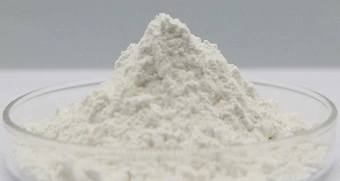Betulinic Acid: Nature’s Powerhouse with Huge Therapeutic Potential
11 Oct 2024 • by Natalie Aster

Betulinic acid, a pentacyclic triterpenoid found in nature, has gained considerable attention in the scientific and medical communities due to an array of therapeutic benefits. Derived from the bark of several tree species, most notably the white birch (Betula alba), it is recognized for its ability to combat various health conditions, including cancer, viral infections, and inflammation. Its natural origin and potent biological activities render it an exciting candidate for developing novel medications. Below, we explore the therapeutic potential of betulinic acid and its promising applications in medicine.
Anti-Cancer Properties
The most extensively studied therapeutic benefit of betulinic acid is its anti-cancer activity. Betulinic acid exhibits selective cytotoxicity against a broad range of cancer cells, including melanoma, lung cancer, breast cancer, and neuroblastoma. What sets betulinic acid apart from conventional chemotherapy agents is its ability to target cancer cells selectively without posing a substantial risk to healthy cells. This selective toxicity reduces the side effects often associated with traditional cancer treatments.
Betulinic acid induces cancer cell death through several mechanisms, including the activation of apoptosis (programmed cell death), inhibition of angiogenesis (the production of new blood vessels that supply tumors), and the disruption of cancer cell metabolism. According to studies, betulinic acid can effectively curb tumor growth, making it a promising compound for further development as an anti-cancer agent. Its potential use in combination with existing therapies is also being explored, as it may enhance the efficacy of existing treatment options.
Anti-Inflammatory & Antioxidant Effects
Inflammation is a key factor in different chronic diseases, including arthritis, autoimmune disorders, and cardiovascular diseases. Betulinic acid boasts an impressive anti-inflammatory effect, it blocks the synthesis of pro-inflammatory cytokines and enzymes, such as tumor necrosis factor-alpha (TNF-α) and cyclooxygenase-2 (COX-2). This inhibition helps reduce inflammation and prevents the progression of inflammatory diseases.
Additionally, betulinic acid is able to protect cells from oxidative stress caused by free radicals. Oxidative stress is linked to the aging process and the development of various diseases, including neurodegenerative disorders like Alzheimer's and Parkinson's. By neutralizing free radicals and minimizing oxidative damage, betulinic acid offers potential protective effects against some age-related diseases.
Antiviral Activity
Betulinic acid exhibits promising antiviral properties, particularly against viruses like HIV, influenza, and herpes simplex virus (HSV). In the case of HIV, betulinic acid and its derivatives have been found to inhibit the maturation of the virus, effectively blocking its ability to infect new cells. This antiviral activity opens the door for betulinic acid to be used as part of a multi-faceted approach to combat viral infections, particularly in drug-resistant cases where traditional antiviral treatments may be less effective.
Moreover, betulinic acid's antiviral effects aren’t limited to HIV. Studies have demonstrated that it can inhibit the replication of other viruses, such as the hepatitis B virus and the Epstein-Barr virus. These findings suggest that betulinic acid could play a role in developing treatments for diverse viral infections that pose a substantial threat to global health.
Anti-Microbial & Anti-Parasitic Potential
Beyond its antiviral properties, betulinic acid also possesses anti-microbial and anti-parasitic activities. It has demonstrated efficacy against a range of bacterial and fungal pathogens, making it a potential candidate for developing novel antimicrobial agents. As antibiotic resistance continues to rise, the search for novel, naturally derived antimicrobials like betulinic acid becomes increasingly vital.
Besides, betulinic acid has been found to exhibit activity against parasites such as Plasmodium falciparum (cause malaria) and Leishmania species, which cause leishmaniasis. These findings highlight the compound's potential as a therapeutic option for parasitic diseases afflicting millions of people around the globe.
Final Thoughts: A Promising Natural Therapeutic
Betulinic acid stands out as a highly promising natural compound. Its unique properties position it as a valuable resource for developing novel treatments across multiple medical fields. As research continues to uncover the full potential of betulinic acid, it could pave the way for innovative therapies leveraging the power of nature to combat some of the most challenging health conditions.
Product Details:
Betulinic Acid (CAS 472-15-1) Market Research Report 2024
Published: September 2024
Pages: 50
Market Publishers boasts a rich collection of insightful research studies covering the chemicals and petrochemicals market, find it in the Chemicals & Petrochemicals Market Reports Catalogue.
CONTACTS
The Market Publishers, Ltd.
Natalie Aster
Tel: +44 208 144 6009
Fax: +44 207 900 3970
[email protected]
MarketPublishers.com
Analytics & News
